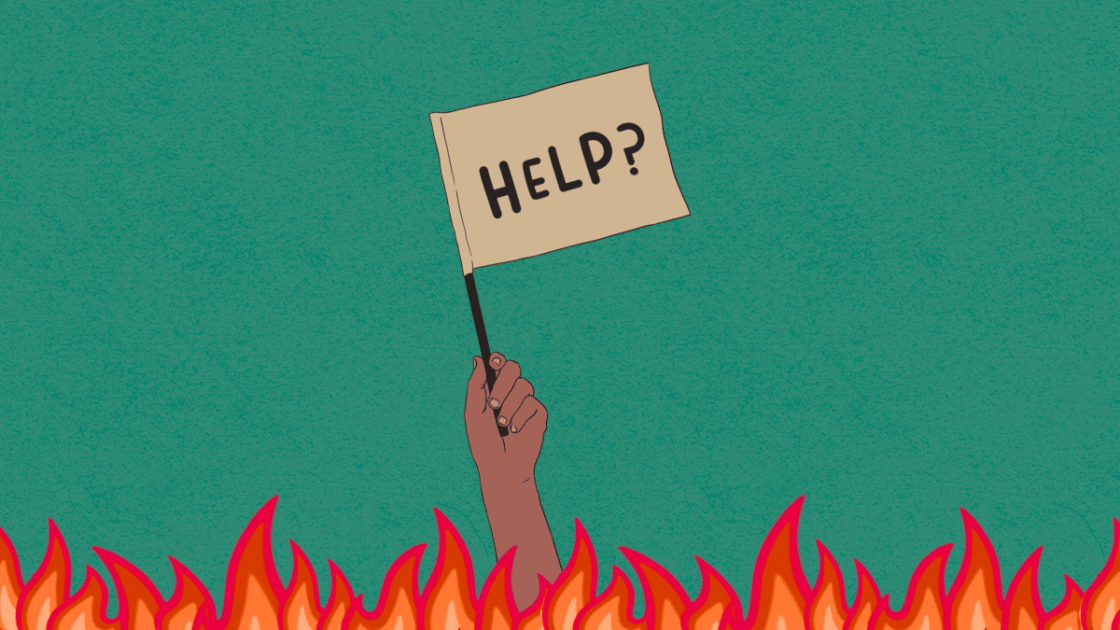What you can do if you’re feeling burnt out
If you are feeling burnt out, know that there are steps you can take and supports available to help you to move towards recovery

Burnout is a complex issue that results from long-term stress and is influenced by the environment around you. While recovering from burnout takes time, know that it is possible and there is support available.
Recovering from burnout
Burnout is a state of physical, mental and emotional exhaustion caused by too much stress over a long period of time. If you are feeling burnt out, there are steps you can take to move toward recovery.
Visit your doctor
If you think you are experiencing burnout, it is important to seek professional support. As burnout shares similar symptoms with mental health conditions such as depression, it is a good idea to visit your GP to talk about how you’re feeling. This will help ensure you’re taking the right steps for your situation. Find out how to talk to your doctor about your mental health.
Try to avoid blaming yourself
If you become burnt out, you might blame yourself for reaching that point. You may believe that other people are more capable than you, or see your burnout as a sign of weakness.
In our workplaces and wider society, being constantly productive and engaged is usually celebrated, with very little recognition given to the negative effects that this can have on an individual. Just because certain beliefs about productivity and rest are widespread doesn’t mean that they’re necessarily right or healthy. It is these very beliefs, together with other forms of stress, that can push people towards burnout.
If you are experiencing burnout, remember this: it’s not your fault. Read more about how society influences burnout.
Recognise what is in your control when recovering from burnout
In order to recover from burnout, it might help to take a step back from a few things. However, it is important to be realistic about what you can do. This will look different for everyone.
In order to pinpoint where you can make changes, make a list of all of your current commitments and activities. This can include work, school or college, volunteering, sports, caring for a loved one, social time and screen time. If you identify any of these activities as a cause of stress, think about how you might engage differently with the activity.
While you might not be able to simply drop a responsibility, there may be something you can do to make it easier to manage as you focus on getting well. For example, if your job is causing you stress, you might not be in a position to quit. However, steps you might consider taking include speaking to your employer about your mental health, asking for a reduction in your work hours, and taking leave. If school is causing you stress, you could consider talking to your teachers or guidance counsellor, dropping a level in certain subjects, or asking for deadline extensions. Making these kinds of changes is completely acceptable and does not mean that you are less capable or strong than anyone else. In fact, learning to advocate for yourself is a sign of strength.
Sometimes, small changes may not be enough. If you recognise that a job, educational course, or other path isn’t right for you and you have the option to leave, it’s completely ok to do so.
Prioritise simple self-care
If you are experiencing burnout, it is really important to look after yourself and your needs. This is known as self-care. Prioritising self-care is important, and it becomes even more necessary when you’re recovering from burnout. It can be helpful to reflect on what self-care means to you. The self-care routine adopted by your friend or someone you follow on social media might not be suited to your own needs right now, or at any time. If the new routine involves additional activities, it might even have an opposite effect and create more stress.
The most effective self-care routine is a simple one. It can include steps such as:
- Eating nutritious and regular meals
- Spending time in nature
- Getting enough sleep
- Limiting social media and phone use
- Doing gentle activities that you enjoy, such as reading
- Building a soft routine or structure into your day e.g. going to bed at 9pm
You might not have the energy for many activities, or any at all, right now, and that’s ok. While it might be hard to imagine now, in time, you can regain the energy and motivation to do the things you once enjoyed. In the meantime, focus on taking care of yourself and your basic needs.
Embrace rest and sleep
Rest and sleep are really important parts of recovering from burnout. If you are experiencing burnout, it is a good idea to make time for both.
Sleep and rest can both provide mental and physical benefits, but they are not the same thing. Rest allows your body and mind to completely relax. However, unlike sleeping, you are still conscious and aware of your surroundings. Rest can be either active or passive. Relaxation techniques such as mindfulness are considered active rest. Lying down with your eyes open or closed is an example of passive rest.
Sleep is an essential function that allows your body and mind to recharge and repair. It is important that you get enough quality sleep each night, particularly if you are recovering from burnout. Find out more about how to improve your sleep.
Talk to someone
If you are experiencing burnout, it is important to know that you’re not alone. There are people you can talk to about your concerns and who can help you on the road to recovery. This could be a trusted friend, family member, teacher, counsellor, or another person you feel comfortable sharing your feelings with. You can also contact TextAboutIt.
Because burnout is a gradual process, it makes sense that recovering from burnout also takes time. It will likely take more than a holiday or a week off work to get better. The amount of time it takes to recover from burnout will vary from person to person and depends on how severe the burnout is. If you are experiencing burnout, it is important to seek support and develop a recovery plan that works for you.
Feeling overwhelmed and want to talk to someone?
- Get anonymous support 24/7 with our text message support service
- Connect with a trained volunteer who will listen to you, and help you to move forward feeling better
- Whatsapp us now or free-text SPUNOUT to 50808 to begin.
- Find out more about our text message support service
If you are a customer of the 48 or An Post network or cannot get through using the ‘50808’ short code please text HELLO to 086 1800 280 (standard message rates may apply). Some smaller networks do not support short codes like ‘50808’.






